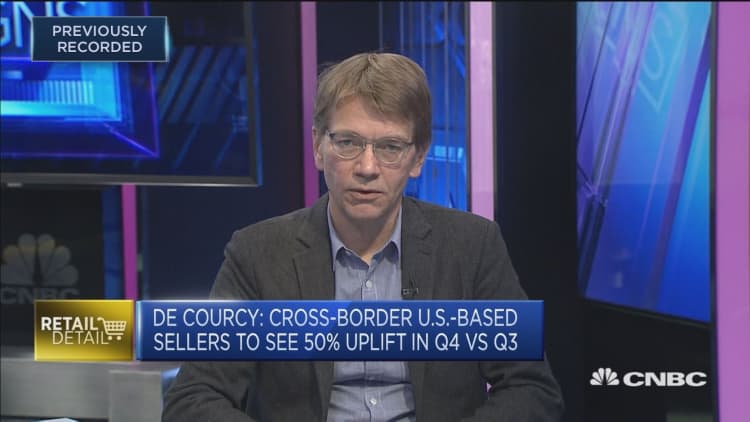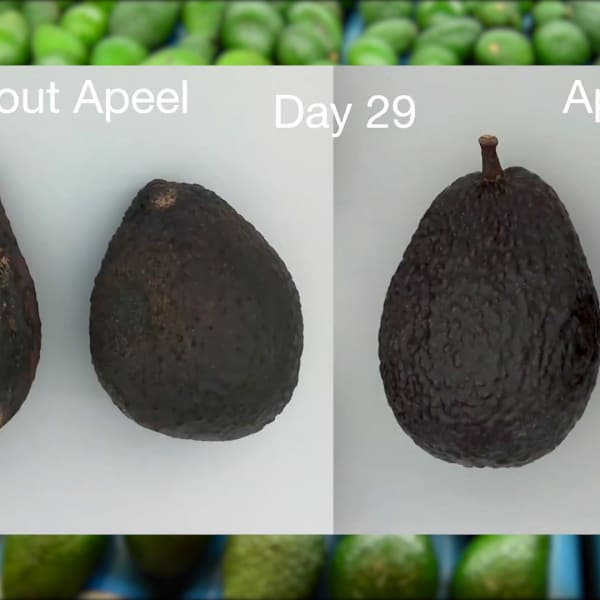One world, one currency?
Certainly, one global currency would eliminate problems like intentional manipulation of currency values and it could make pricing transparent and eliminate foreign transaction fees. In fact, the benefits of a global currency is one of arguments for bitcoin by its proponents.
But as logical and desirable as the idea sounds, it's unrealistic.
In particular, there would be no tangible benefit to the U.S. government to transition to a single global currency.
That's according to Scott Galit, the CEO of New York City-headquartered Payoneer, a global payment processor start-up named one of CNBC's most disruptive companies of 2018.
"Despite the interests of lots of people out there in the Internet world who love the idea of frictionless commerce and frictionless money and avoiding fiat currencies, I don't see it," Galit tells CNBC Make It of the idea of a future single global currency.
First, Galit says it's unlikely the U.S. government will ever allow people to pay their taxes with something like bitcoin, because that would mean the government's money would be subject to the exchange rate fluctuations of that digital currency. For example, by December, bitcoin had lost about two thirds of its value since the beginning of 2018, according to CoinMarketCap. If that happened to government money, it would not be able to meet its financial obligations, according to Payoneer.

"Now you could have a debate whether taxes are fair or unfair or whatever but they are a reality. There are going to be taxes because governments need revenues," Galit says. "Countries actually need tax revenue in order to fund services for their residents."
But at least when it comes to state government, some attitudes may be shifting. Ohio has become the first state in the country to allow certain tax bills to be paid with bitcoin, but payments still need to go through the website OhioCrypto.com, which converts bitcoin into cold hard cash, which the government then receives, highlighting Galit's point. Arizona, Georgia and Illinois have bills in the works that would allow bitcoin to be used to pay tax bills in a similar way, according to the Wall Street Journal.
In addition to taxes, Galit says the U.S.'s Federal Reserve System is a hurdle.
The Fed exists to "[promote] the stability of the financial system," and "to minimize and contain systemic risks through active monitoring and engagement in the U.S. and abroad," among other tasks, according to its website. Its most powerful lever on the U.S. economy is its federal fund interest rate, or the rate at which it lends money to banks. If the Fed raises the interest rate, borrowing money becomes more expensive in the U.S. economy, thereby putting a damper on growth. If, on the other hand, the Fed lowers interest rates, borrowing money becomes cheaper, thereby accelerating the economy.
If a nation's central bank does not have the ability to control the currency for the people in its own nation state, then it is largely rendered impotent. And most countries have their own central banks too.
"Central bankers are there to actually help manage the economies and provide kind of stewardship for those economies," Galit says. "Part of that is actually managing currency in the interest rates [for lending] and in exchange rates. If you don't actually have any control over a currency you've lost one of the major policy tools that you have, so what do you do?"
While the Payoneer system is free, the company helps clients receive payments from more than 200 countries around the world and it makes money charging fees to make withdrawals in different currencies (as well as offering other financial services), so it has a stake in the currency game. But Galit is not alone in his skepticism. Other experts agree a single currency is impractical and unlikely to happen any time soon.
However, there are dissenters. Twitter CEO Jack Dorsey said in March that he expects bitcoin to become a single universal currency within a decade, "but it could go faster," he told the Sunday Times newspaper.
And Apple co-founder Steve Wozniak at least hopes that's the case. "I buy into what Jack Dorsey says, not that I necessarily believe it's going to happen, but because I want it to be that way, that is so pure thinking," Wozniak told CNBC on in June.
For Galit's part, he's firm: "Practically, there are going to be limitations and constraints that are in the very, very, very hard for folks to overcome," he says.
— Video by Beatriz Bajuelos Castillo
See also:
Money advice from budget-savvy moviemaker Mark Duplass: Eat ramen, buy stock
How Anne and Susan Wojcicki's parents raised the founder of 23andMe and the CEO of YouTube

Like this story? Subscribe to CNBC Make It on YouTube!






